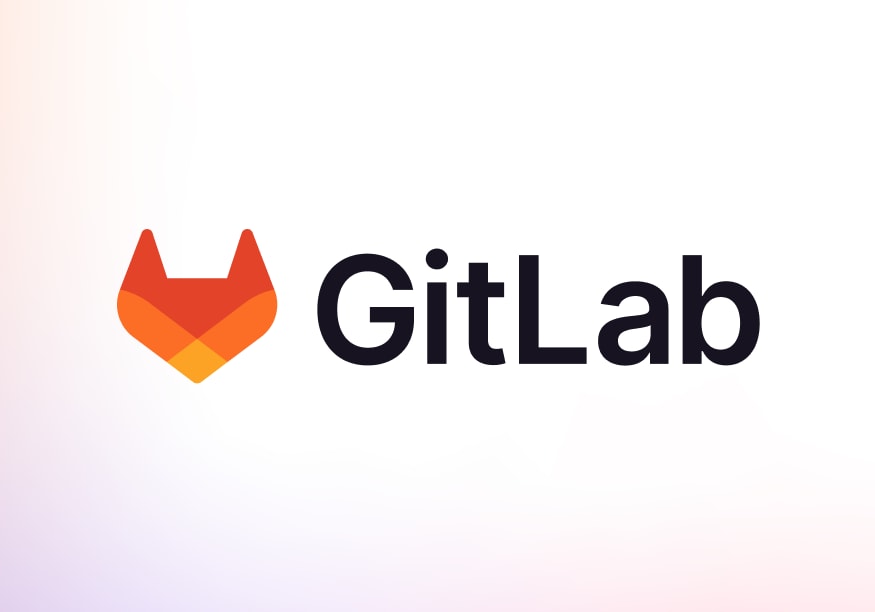Overview
Discover what makes GitLab powerful
GitLab is a full‑stack DevSecOps platform that consolidates source control, continuous integration, security analysis, and deployment into a single web application. From a developer’s standpoint, it functions as an *application‑as‑a‑service* that can be self‑hosted on any infrastructure, offering a rich REST/GraphQL API, WebSocket streams, and an extensible plugin system. The core goal is to eliminate tool fragmentation: every code change triggers a pipeline, automatic security scans run in parallel, and the results surface directly within merge requests or the IDE via AI‑powered assistance.
Backend
Database
Containerization
Infrastructure
Overview
GitLab is a full‑stack DevSecOps platform that consolidates source control, continuous integration, security analysis, and deployment into a single web application. From a developer’s standpoint, it functions as an application‑as‑a‑service that can be self‑hosted on any infrastructure, offering a rich REST/GraphQL API, WebSocket streams, and an extensible plugin system. The core goal is to eliminate tool fragmentation: every code change triggers a pipeline, automatic security scans run in parallel, and the results surface directly within merge requests or the IDE via AI‑powered assistance.
Technical Stack & Architecture
- Backend: Ruby on Rails 7 serves the web UI and API endpoints, while Go‑based services handle CI runners, WebSocket events, and distributed job queues. The application is modular; each service can be deployed independently or as a monolith.
- Database: PostgreSQL 13+ is the primary relational store; Redis clusters provide caching, Pub/Sub for real‑time updates, and a job queue (Sidekiq). Optional external data stores include Elasticsearch for search indexing.
- Containerization: GitLab’s official Docker images are built from a multi‑stage Dockerfile. The platform supports Kubernetes native deployments via the GitLab Runner, Helm charts, and an operator for automated lifecycle management.
- Infrastructure: The self‑hosted appliance can run on bare metal, VMs, or cloud platforms (AWS, Azure, GCP). High‑availability setups use PostgreSQL replication, Redis Sentinel, and load balancers (NGINX/HAProxy). The platform is designed to scale horizontally by adding more runners or scaling the database cluster.
Core Capabilities & APIs
- CI/CD Pipelines: Declarative YAML (
.gitlab-ci.yml) defines jobs, stages, and artifacts. The Runner API exposesPOST /api/v4/projects/:id/runnersfor dynamic registration. - Security & Compliance: Built‑in scanners (SAST, DAST, Dependency Check) run as pipeline jobs. The Security Dashboard aggregates findings; the API (
GET /api/v4/projects/:id/security/policies) allows programmatic retrieval. - Merge Request & Code Review: REST endpoints (
POST /merge_requests) and GraphQL support fine‑grained access to diff data, approvals, and inline comments. - AI Integration: The new AI Code Assistants expose endpoints (
POST /ai/assistants) that stream suggestions or chat responses; they integrate directly into the IDE and merge request UI. - Webhooks & Events: GitLab emits webhook payloads for pushes, merge requests, pipeline status changes. The Event API (
GET /api/v4/projects/:id/events) supports server‑to‑server integrations.
Deployment & Infrastructure
Self‑hosting requires a minimum of 4 CPU cores, 8 GiB RAM per node, and 50 GiB SSD for the primary database. For production, a typical deployment includes:
- Web tier – Rails app behind NGINX with SSL termination.
- Worker tier – Sidekiq processes for background jobs and pipelines.
- Runner pool – Docker or Kubernetes runners scaling on demand.
- Database cluster – PostgreSQL primary with streaming replication; optional read replicas for load balancing.
- Cache layer – Redis cluster for session storage and job queues.
GitLab’s gitlab.rb configuration file offers fine‑grained control over logging, email delivery, LDAP integration, and external storage (S3, GCS). The platform’s observability stack includes Prometheus metrics (/metrics), Grafana dashboards, and a built‑in log aggregator.
Integration & Extensibility
- Plugins: The “GitLab App” framework allows developers to create webhooks, custom pipelines, or UI extensions that run in the context of a project. Apps can be distributed via the GitLab Marketplace.
- Custom CI Templates: Reusable YAML snippets (
include:) enable teams to standardize build logic across repositories. - External APIs: OAuth2, SAML, and LDAP authentication can be delegated to external identity providers. The platform also supports third‑party CI/CD integrations via the API or webhooks.
- GitLab Runner Extensions: Custom executors (e.g., K8s, Docker‑in‑Docker) can be added to the runner configuration, allowing developers to tailor execution environments.
Developer Experience
GitLab’s documentation is comprehensive: from the Developer’s Guide to API references, all hosted under docs.gitlab.com. The UI follows a consistent design system; the IDE integration (VS Code, JetBrains) provides inline linting, auto‑completion, and AI suggestions. Community support is robust: an active open‑source project with thousands of contributors, a dedicated GitLab Forum, and regular release notes. The platform’s configuration files (gitlab.rb, .gitlab-ci.yml) are declarative, making version control and audit trails straightforward.
Use Cases
- Enterprise Continuous Delivery – Teams can enforce policy gates (code quality, security scans) before merge, ensuring compliant releases.
- Open‑Source Projects – Self‑hosted GitLab can act as a fully private mirror, with fine‑grained access control and built‑in issue tracking.
- Hybrid Cloud Environments – GitLab Runner can run on-premises while the web tier is cloud‑hosted, providing a secure perimeter for sensitive code.
- AI‑Driven Development – New AI assistants streamline code reviews and vulnerability detection, accelerating feature cycles.
Advantages Over
Open SourceReady to get started?
Join the community and start self-hosting GitLab today
Related Apps in development-tools
Hoppscotch
Fast, lightweight API development tool
code-server
Self-hosted development-tools
AppFlowy
AI-powered workspace for notes, projects, and wikis
Appwrite
All-in-one backend platform for modern apps
PocketBase
Lightweight Go backend in a single file
Gitea
Fast, lightweight self-hosted Git platform
Weekly Views
Repository Health
Information
Explore More Apps
Kuvasz
Open‑source uptime & SSL monitoring with status pages
Canvas LMS
Open‑source learning platform for educators and students
ByteStash
Secure, self‑hosted snippet manager for developers
Apache Guacamole
Clientless remote desktop gateway via HTML5 browser
Nullboard
Compact, offline kanban board for quick task management
Antville
Scalable, feature-rich multi‑blog hosting platform
